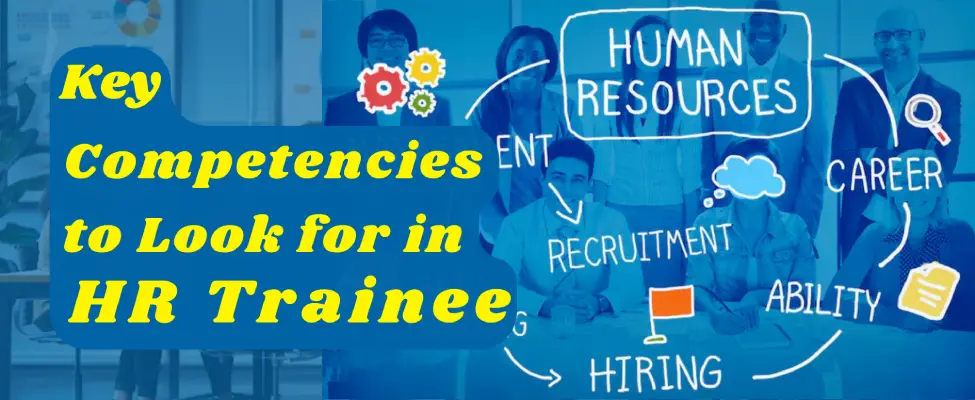Reviewed by HR & Business Communication Experts Updated for 2026 Professional Communication Standards
Human Resource Meaning Definition, Concept & History of HR
Human Resource commonly known as HR. The collective group of people who work for a business, or for an organization is known as its human resources.
A more precise term for this is "human capital," which refers to a person's knowledge and abilities. Labor, staff, companions, and individuals themselves are examples of related notions. Some of the renowned scholar has considered human resources as the wealth of nations as well. Human capital is sometimes used synonymously with human resources.
The HR is one of the divisions of an organization is incharge of managing the employee life cycle.
The major duties of HR are hiring, onboarding, training and terminating employees if required. The main objective of Human Resource Department is to increase employee’s productivity and fulfill the organizational goals.
Depending on the size of their firm, HR officials such as administrators, managers, and generalists may have a variety of job duties.
What is Human Resource?
In the success of every business, five M's Man, Money, Material, Methods, and Machinery/Minutes play a crucial role. Human resource is an essential element of an organization. It includes all the employee and the people whosoever is contributed to the organization through their services. Specifically, employees are considered as human resources of the business.
The department handles the personnel management activities of an organization is also known as Human Resource. This department also executes the process of hiring, employee benefits, and compensation. Human resources are the lifeblood of every organization. The progress of an organization largely depends on their ability and performance. An efficient and competent workforce ensures long term sustenance in the industry.

In the current business scenario, the Human Resource Department is one of the most required departments in any business organization. This department plays a crucial role in the placement of the right person in a suitable position in the organization. It supports the organization to align employee performance with its objectives. Also, it will enable managers to hire competent employees, upgrade their performance through training and development, the evolution of inclusive culture, and maintain relations.
Human Resource Meaning
A business organization is compiled of Physical capital resources, Human capital resources, and organizational capital resources. Physical capital resources involve geographic location, accessibility of raw material, and infrastructure. Human capital resources include the relationships, intelligence, judgment, and training of employees and managers. And the organizational capital resource is a combination of formal and informal processes, reporting structure, and its network. All these sources are a significant source of an organization's strength and productivity. Employees of an organization are regarded as the most prominent factor for the survival and growth of an organization in the industry. Along with it, the organization's structure and processes are necessary to combine resources and structure efficiently to gain strategic advantage. In short, human resources are the strategic choice to maximize returns.
Human Resource Definition
Human Resource are all of the knowledge, skills, energy, talents, and other qualities of the human spirit that are natural in every individual and may be utilized for sustained work and may be used for prolonged employment.
HR promotes the effectiveness of the organization as a whole, they resolve issues, impose sanctions, and develop the workforce. They are also responsible for building, managing and improving the labour workforce within an organization.
Human Resource Definition by Eminent Scholar /Authors
Different Authors had distinct viewpoints towards human resource. Henceforth, they define Human Resource based on their skills, research, and experience. Find below human resource definition given by some of the prominent authors & experts:
Frederick H. Harbison "According to him human resources are considered to be the wealth of a nation. He defined "Human resources are the energies, skills, talent, and knowledge of people, which are, or which potentially can or should be, applied to the production of goods or the rendering of useful services".
Leon C. Megginson defined “HR as the total knowledge, skills, creative abilities, talents, and aptitudes of an organization's workforce, as well as the value, attitudes, and beliefs of the individuals involved.”
Jucius Michael calls human resources, as ‘human factors’, which refer to “a whole consisting of inter-related inter-dependent and inter-acting, physiological, psychological, sociological and ethical components.”
Gray Dessler “The policies and practices one needs to carry out the people or human resource aspects of a management position, including recruiting, screening, training, rewarding, and appraising”
David A Decenzo and Stephen p. Robbins “Human Resource is made of four activities:
a) Staffing,
b) Training and development,
c) Motivation and
d) Maintenance.
Cambridge dictionary states “Human resource definition “people, when considered as an asset that is or can be employed and that is useful to a company, organization, etc."
Human Resource Concept
Earlier Personnel administration was regarded as the HR department of an organization because most of the employee-related activities viz. hiring, training, employee welfare, etc. performed by them in organizations. It entailed employee record keeping, implementation of organizational regulations according to employment laws. Also, personnel administrators determine wages, compensation, and other employee benefits. Managers used to perform tasks of administrators to maintain a smooth flow of work in the organization.
HR History -Evolution of Human Resource
During the 18th century, the evolution of Human Resource began in Europe. It originated from a basic idea of Charles Babbage and Robert Owen around the Industrial Revolution. It originated from the stages of a trade union, human relations, and the industrial revolution. It was an advanced approach where employees were valued in the organization. The introduction of HRM abolished the hire and fire policy and autocratic rule of personnel managers of the organizations. HRM projected a positive image of HR departments among the employees. Also, it allows them to share their opinions and views about the policies and decisions of the organization. It fosters loyalty and trust in employees, and encourages them to perform with full potential.
Nowadays, Human Resource Professionals perform as a strategic business partner of the organization. It involves the development of workforce strategies and their implementation to attain competitive goals in the industry. Also, all the HR techniques, like recruitment, training, compensation, and employee relations are used to strengthen the organization and to ensure sustenance in a highly competitive business environment.
A remarkable change can be seen in the functioning of the HR activities of the organization. Today's HR departments are proactive and invest in employee engagement and empowerment to derive the best results from their abilities. Ambitious and innovative HR strategies improve the organization's aptness to grow. In a nutshell, HRD is quite concise and forward-looking to make the best utilization of the human resources of an organization.
HR Practices
HR practices involve all the activities that support the Human resource management of an organization. These activities add consistency, structure, reasonableness, and fairness to the organizational functioning. Most of the HR activities fall under five core areas: compensation, safety, labor relations, staffing, employee legislation, etc. The HR practices of an organization include Performance Management, Training and development, job analysis, and job design, Compensation and Benefits, Recruitment and selection of retail employees, Labor Relations, etc.
In this digital age, the HR practices of organizations are highly employee-oriented. They intended to keep employees satisfied and engaged at work, to maintain high productivity and citizenship behavior. Now, HR managers need to analyze the data to keep a track record of employee performance, evolve strategy based on their analysis, and emphasize on empathy to make the fullest utilization of employee potential. Facebook, Accenture, and Google are some of the companies with the best HR departments.
Current HR practices of organization involves creation of fair and performance-based compensation structure, development of self-managed teams, selective hiring, and providing security to employees. Additionally, the recent trends of HRM adopt inbound recruiting, promote recruitment marketing, use learning management systems, and implement virtual tools for organizational HR processes.
Author & Reviewer
This content is prepared and reviewed by HR and workplace communication professionals and is updated to reflect current professional Standards.
- Que:
What is the Full form of HR?
- Ans:
The full form of HR is Human Resources. It refers to the department in an organization responsible for managing employee-related functions like recruitment, training, payroll, performance management, and ensuring compliance with labor laws and organizational policies.
- Que:
What do mean by human resource?
- Ans:
HR is a company’s department in charge of everything related to employees of an organization. It also includes finding, screening, choosing, onboarding, training, promoting, compensating, and terminating workers.
- Que:
What are the 5 examples of human resources?
- Ans:
Top 5 examples of human resources are:
- Salary and Benefits
- Recruitment and Staffing
- Safety & Compliance
- Training Development
- Talent Management
- Que:
What are the 7 types of human resources?
- Ans:
The 7 types of human resources are:
- Recruitment and Selection
- Performance Management
- Learning and Growth
- Succession Planning
- Benefits and Compensation
- Human Resources Information Systems (HRIS)
- HR Analytics and Data
- Que:
What is HR called now?
- Ans:
HR is now known as People Operations Leaders. People Operations Leadership shows a change in how to manage the department, where the focus should be, and what the team's purpose has become, going beyond simply rebranding the HR function.
Frequently Asked Questions of Human Resource
Explore more Topics of Human Resource
Latest JobsView All
-
Sr Manager Quality Assurance (... New Delhi 24 Feb 2026 Ascent Human Solutions Pvt. Ltd..
-
Sales Representative (On Contr... Agra 24 Feb 2026 Ascent Human Solutions Pvt. Ltd..
-
Customer Support Executive... Pune 24 Feb 2026 Ascent Human Solutions Pvt. Ltd..
-
Procurement Manager ... New Delhi 25 Feb 2026 Ascent Human Solutions Pvt. Ltd..
-
Manager Marketing (B2C) @ Delh... New Delhi 26 Feb 2026 Ascent Human Solutions Pvt. Ltd..
RELATED ARTICLES
-
Business & Management Budget-Friendly Office Cubicles: Cost-Effective Options for ... Explore
-
Law & Compliances Integrating Local Law 152 Gas Inspections Into Your Annual B... Explore
-
Human Resource Key Competencies to Look for in HR Trainees Explore
-
-
Performance management Employee Happiness and Workplace Happiness 2025 Explore
-
Performance management Boosting Employee Engagement and Knowledge Retention through... Explore
-
Human Resource Why Employee Voice Matters? Explore
-
-
-
Human Resource HR Planning - How to Manage Your Leave Policy Structure Explore
-
Human Resource Mastering Leadership: The Three C's of Success Explore
-














